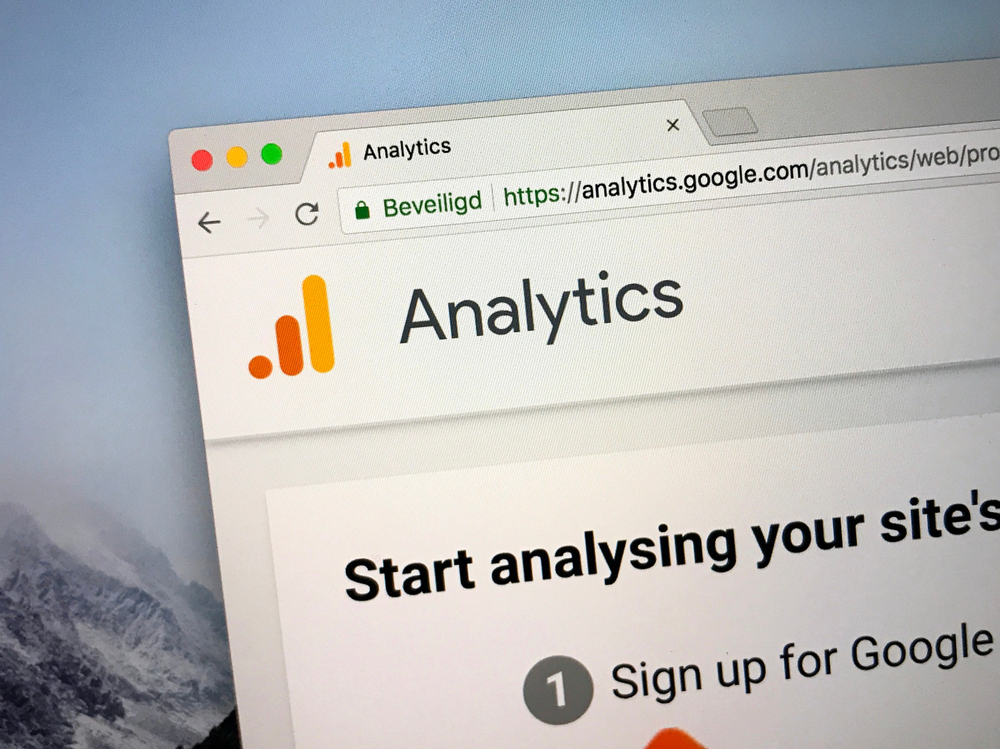Setting goals, selecting relevant key performance indicators (KPIs), and measuring successes and failures are all core components of a solid content marketing plan for lawyers. In the final stages, in-depth analysis of content performance should occur, but it needs to be done with purpose and strategic direction.
Tools like Google Analytics (GA) and Google Search Console (GSC) can be invaluable during this process. They provide extensive data about website performance, audience engagement, functionality, and optimization. Since websites are a key platform for lawyers to distribute content, build professional recognition and authority, and garner leads, analyzing your website is essential for success.
The combination of customizable reports, user data, filters, and goal-setting features in Google Analytics and Google Search Console allows you to track the impact of your firm’s online content. Lawyers can see whether they’re connecting with and reaching the right people, how Google views their site, and ultimately, how to improve visibility and a strong presence.
But do you know how to use Google Analytics and Google Search Console? Keep reading to learn what these tools offer and why they’re important to lawyers. We explain how the information they track can be used to meet your law firm’s goals and leverage what’s learned to guide ongoing content marketing efforts.
Beyond setting up both of these tools individually, lawyers should connect Google Search Console and Google Analytics for the greatest benefits, as outlined by the how-to guide created by Semrush.
Why are Google Search Console and Google Analytics Important?

Numbers drive a good business. Tracking, understanding, and leveraging what’s learned in Google Analytics and Google Search Console provides these numbers. They not only help streamline and improve your marketing campaigns but prove that it’s worth the resources necessary to do it right.
Since content marketing is a continuous process, the results gathered through these tools will impact, improve, and guide future – and existing – content. Essentially, Google Analytics and Google Search Console help you analyze how content creation and distribution perform, as well as take those results and leverage them for greater success.
It’s crucial to understand and appreciate that if lawyers skip or improperly perform website analysis in their content marketing plan, you’ll miss out. You won’t know if you’re driving traffic to important content clusters and pillar pages or if you’re getting conversions (leads) through your site. You also won’t know if your law firm’s Google Ads are delivering results or if your paid and organic social media strategies are effective at driving traffic.
What’s risky but common is that you’ll fall behind your competitors without analyzing website performance and content optimization. Getting back in the race takes a lot more resources and is more difficult than if you did this part of content marketing in the first place.
Understanding what’s working and what isn’t is necessary to properly reach your law firm’s target audience. Google Analytics and Google Search Console can help your website, blog, newsletter, and social media content succeed. Business and content goals might not be achieved, or at the very least, have limited potential when audience trends and web performance data aren’t tracked.
Lawyers who commit to content marketing analysis with Google Search Console and Google Analytics will see several benefits and learn invaluable information: areas to improve, missed opportunities, new strategies to leverage, and if your content marketing campaigns are doing what they should.
Who visits and engages with your website and blog, and how is your audience being directed to high conversion pages? This information can be learned through Google Analytics and Google Search Console. Lawyers can have access to the data they need to ensure their content marketing strategies are working and whether your combined content efforts are doing what they should.
Google Analytics, Google Search Console and SEO
You’ve no doubt heard of search engine optimization (SEO), but do you know how important it is for content marketing and how website tracking tools fit into the equation? Poor SEO will directly impact the success of your content. Period. It will mean your law firm doesn’t show up on the first page of Google results for the search terms and keywords your target audience uses – and that’s a big problem.
Since the top search result gets more than the majority of clicks, with the following two to five results being exponentially smaller, content marketing must include SEO strategies. It’s also crucial to note that once you achieve good rankings, keeping your spot requires maintenance, staying up to date on search trends, and regular website analysis. Through the use of Google Analytics and Google Search Console, you can see how your content performs and what, exactly, you’re ranking for and how well.
But it’s about more than just good rankings. Your law firm could have the #1 spot on Google, but you still need people to click through to your website and be ranking for the best keywords for your practice areas. This means that the headlines and content people see on search engine results pages (SERPs) need to be persuasive and clear to entice your audience to click your link.
Google Search Console provides SEO data that can greatly help lawyers achieve goals. It evaluates and tracks page load speed, mobile friendliness, keywords, referral channels, content quality, and many other factors that affect search engine rankings. Ultimately, it’s about how Google views your site.
Still not convinced? Google Search statistics gathered by Hubspot reinforce the need to measure website performance, functionality, and optimization. These stats demonstrate the role of websites and search engines in today’s marketing landscape, and lawyers should use Google Search Console and Google Analytics to ensure website content delivers results.
While Google Analytics and Google Search Console offer powerful insights, some law firms prefer a more streamlined, privacy-focused solution. Plausible Analytics provides a lightweight and user-friendly alternative to GA4, making it easier to track essential website data without unnecessary complexity. Discover how it can simplify your firm's analytics strategy.






